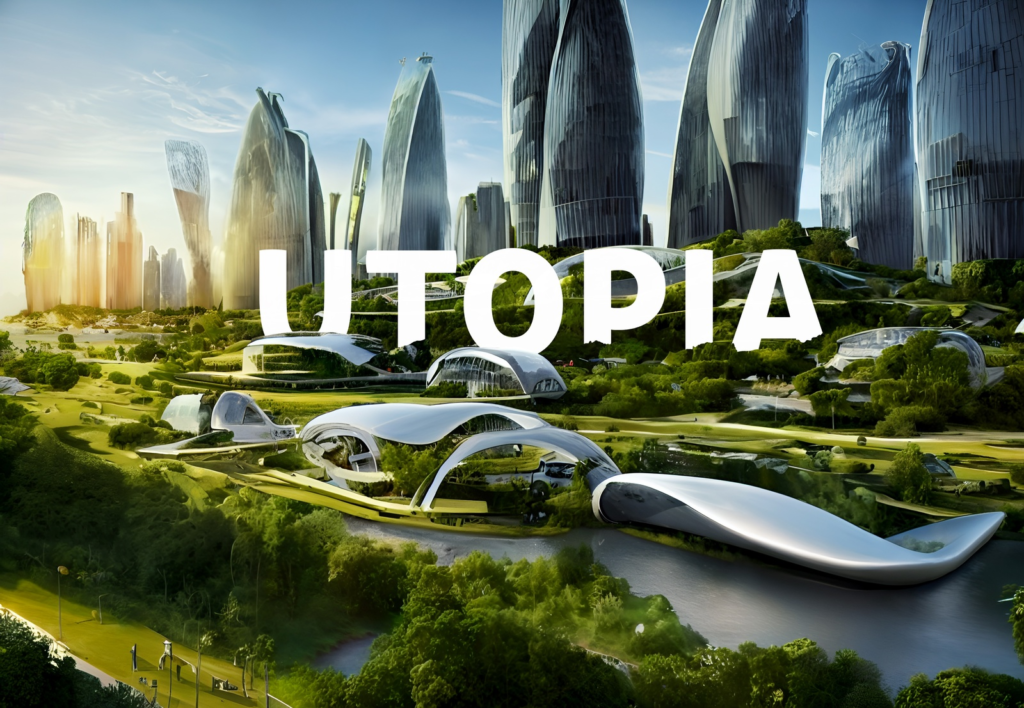Utopia is an ideal society where harmony, equality, and happiness flourish among all its inhabitants. It represents a vision of perfection, often contrasting with the flaws of real-world societies.

Utopia refers to an imagined perfect society, where everything functions harmoniously, and everyone enjoys equal happiness and opportunities. Sir Thomas was popularized the term by More in his 1516 book “Utopia,” which depicted an ideal island society with its own customs and governance.
In literature and philosophy, utopias often explore themes like justice, equality, and the nature of happiness. They can also serve as critiques of existing societies by highlighting flaws and proposing alternative ways of living.
However, the idea of a perfect society is often complicated by human nature, leading to dystopian narratives that explore what happens when ideals are pushed too far or become oppressive.
Are you interested in a some aspect of utopia, like its history, literature, or philosophical implications?

The Ideal Society
“Utopia,” a term coined by Sir Thomas More in his 1516 work of the same name, represents an idealized society where social, political, and economic structures promote harmony, equality, and happiness. The specialty of utopia lies in its exploration of human ideals and the pursuit of a perfect society. Key aspects include:
- Idealism: Utopian concepts challenge existing social norms, prompting discussions about justice, freedom, and the common good.
- Critique of Society: Many utopian works highlight flaws in contemporary society, encouraging readers to reflect on their values and systems.
- Diversity of Interpretations: Utopias vary widely, from the communal living in More’s work to the dystopian twists in modern literature, showing the complexity of human aspirations.
- Philosophical Exploration: Utopian thought often delves into ethics, governance, and human nature, posing questions about what makes life meaningful.
- Inspiration for Change: Utopian visions can inspire real-world social movements and reforms, motivating individuals and communities to strive for betterment.
Overall, utopia serves as a lens through which to envision possibilities for a more equitable and harmonious existence.
One response
Greate information